Back somewhere after my 1970s childhood, Super Sugar Crisp became Super Golden Crisp and Sugar Pops became Corn Pops. Thankfully Sugar Bear, that Super Sugar Crisp mascot, survived, though I haven’t seen much of him lately.
It was due, then, to a 1970s health food craze that had sugar causing all sorts of crazy ailments in children. That was after certain food dyes made kids “hyper.” In that era, nutrition labeling came into being. In the case of these two cereals, thanks to labeling, parents now know that there isn’t really that much nutrition in air, sugar and puffed wheat and puffed corn. I believe it was “voluntary” that the companies did it then. But we all know what “voluntary” means when the Feds are on the case.
The change missed the point. The point of a sweet cereal is to get kids to be in the habit of eating in the morning; surely one great benefit of sweet cereal is that kids drink it with milk. And there was another point that cereal manufacturers missed by caving in; they now had established a precedent that not only was the safety of food the business of government, but now, the government would use its command economy powers to control every detail of the food supply, down to the most basic ingredients.
Yesterday, the same folks who brought you food labeling brought a slew of complaints against the food industry’s health claims and labeling. Yes, this is the same set of folks that will now be sitting at a table with representatives of Philip Morris, talking about making cigarettes safer. This is the same group that have missed major food scares for which they already have statutory authority.
The news stories have focused on which companies got citations. We noticed something very different. The tone. It was terse, pointed and direct. It was obviously done for show, as the letters were sent directly to the CEOs, and released as a group. Let’s look at some of the phrases used, and note that the products aren’t Mountain Dew; they are things like pomegranate juice, kids juice, baby food and oatmeal, all quite healthful.
The letters could have been worded a different way. Words mean something:
- Nestle Juicy Juice: The circumstances under which a “lower in sugar” claim is permitted are defined in 21 CFR 101.60(c)(5). That regulation does not allow the use of the claim for food products intended for use in children under age 2.The circumstances under which a “lower in sugar” claim is permitted are defined in 21 CFR 101.60(c)(5). That regulation does not allow the use of the claim for food products intended for use in children under age 2.
- Beech Nut, to CEO Christoph Rudolf: Except for claims regarding percentages of vitamins and minerals for which there is an established Reference Daily Intake, a nutrient content claim cannot be made for a food that is intended for use by infants and children less than two years of age unless the claim is specifically provided for in parts 101, 105, or 107 of the regulations. 21 CFR 101.13(b)(3).
- Pompeian Olive Oil to Frank Patton, President: Based on claims made on your website, pompeian.com, we have determined that the product “Pompeian Imported Extra Light Olive Oil” is promoted for conditions that cause the product to be a drug under section 201(g)(1) of the Act [21 USC § 321(g)(1)]. The therapeutic claims on your website establish that the product is a drug because it is intended for use in the cure, mitigation, treatment, or prevention of disease. The marketing of this product with these claims violates the Act.
The case of olive oil is most annoying. We all know that olive oil is healthy, and it ought to be promoted as such. The FDA objected to the following, and cited this statement as proof it was now to be regulated as a drug:
-
“Olive Oil is a major component of the Mediterranean diet, which protects the heart, may lower inflammation and coagulation, and may reduce mortality in the elderly.”
Good manufacturers aren’t blameless in all this. And there are many well-meaning people working on these regulations in D.C. But the reality is this; The more that is regulated, the more difficult it becomes to do business. And while the big companies were targeted today, all of the labeling and testing and bureaucratic mess will only go to the benefit of the large companies that are equipped to deal with it. Ultimately, the consumer needs to be the one to decide. And today, the consumer has more information than ever with websites and grocery chains selling every type of healthy food.
This all comes at a time when Congress brought the CEO of Toyota over for a grilling, and U.S. Department of Health and Human Services (HHS) Secretary Kathleen Sebelius has been fighting an open, fierce battle with CEOs of UnitedHealth Group Inc., WellPoint Inc., Aetna Inc., Health Care Service Corporation and CIGNA HealthCare Inc., who will all be meeting with the National Association of Insurance Commissioners at the White House. This isn’t a social visit. The insurance companies are fighting for their lives.
Certainly, FDA has a responsibility to enforce the statutory regulations that Congress has issued. But there is a difference between that, and picking a fight.
The v/p for the Grocery Manufacturers Association toed the line with the FDA. He had to, saying to the Journal that the “examples cited are not indicative to the food industry as a whole.” We would beg to disagree. Brands like Beech-Nut, Pompeian, and Nestle are key companies on grocery shelves.
The wording in the press release about the process was considerably nicer, and we admit that it came after a warning letter last fall. These companies were warned.
“Today, ready access to reliable information about the calorie and nutrient content of food is even more important, given the prevalence of obesity and diet-related diseases in the United States,” Dr. Hamburg said in the letter. She also expressed her hope that the warning letters would clarify the FDA’s expectations for food manufacturers as they review their current labeling.
Companies need to take this stuff seriously, and I am sure that they will, but only in the short term. After all, the FDA letters are reading just like Center for Science in the Public Interest press releases. I don’t blame CSPI; they do what they do openly, and one cannot fault them for having an opinion, even if they do go to extremes. But companies need to be as clever as CSPI, and think of a long term strategy to move ahead of the issue without caving in. Perhaps Kellogg’s might even revive its Battle Creek Sanitarium? I’ve got some ideas, but not sharing them here.
Decades ago, I remember Rush Limbaugh seriously saying that one day, the federal government was going to start going after soft drinks and junk food. Everyone thought he was nuts. In an era of MADD, the government will take on soft drinks? Who are they to tell me I can’t drink soda or eat candy? Well, it has happened.
On surface, much of this seems innocuous. But the reality is that the reason why these companies started on the nutrition labeling was because the government forced them into it. Here it is, 30 years later since Sugar Crisp disappeared in name, and kids are fatter than ever.
The First Lady is on a tear to get all the overweight kids to shape up, including her own. She is playing “Good Cop” quite effectively.
We cannot afford to turn America into some Alice Waters fantasy, where we all eat food that is grown on organic farms nearby.

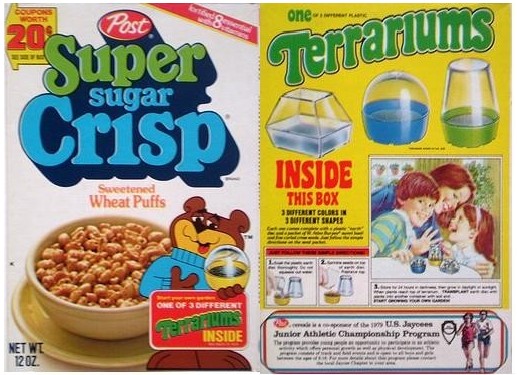

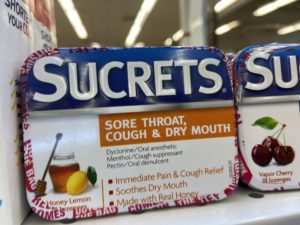
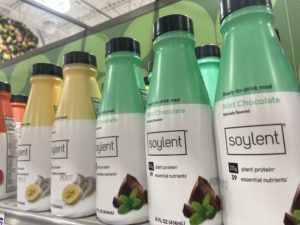
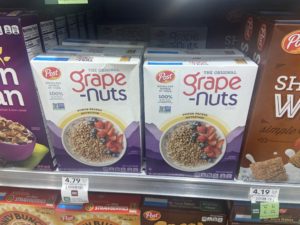
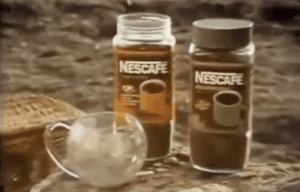
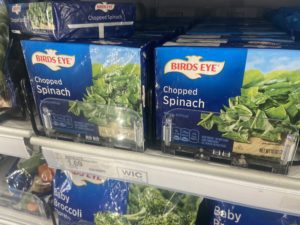

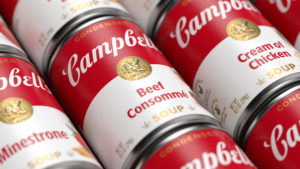

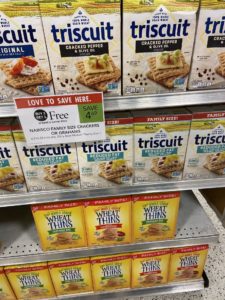



are jane parker fruit cakes available in 2015
Ed…Frankly I am not sure…..I believe so..Amazon will have them if they are….